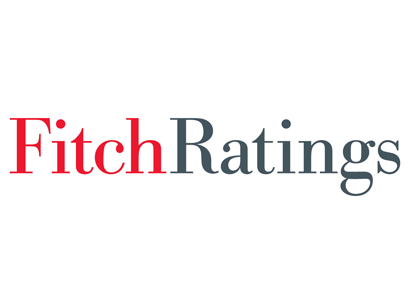Baku, Azerbaijan, March 6
By Abbas Akhundov - Trend:
Fitch Ratings says that Azerbaijan's banking sector is currently broadly stable, supported by the reasonable performance of the domestic economy, which is currently on the positive side of the economic cycle.
At the same time, structural issues continue to weigh on the sector's asset quality, profitability and capitalization, the agency said on March 6.
"Azerbaijan's banks are now refocussing loan growth towards the retail segment to offset legacy impairment problems in corporate portfolios and improve returns on capital through wider margins," according to the statement. "Retail loan growth (44% in 2013) has been considerably faster than nominal household income growth (8% in 2013) resulting in a rapid increase in personal debt burdens."
However, Fitch believes that the quality of existing retail lending is reasonable and that there is some further room for growth, given still modest penetration (retail loans to GDP equal to only 11% at end-2013) and the potential inflow of currently under-banked people into the system.
In contrast, the corporate lending market is closer to saturation, reflected in the lack of good quality borrowers in the system.
"Corporate loan growth was 15% in 2013 after a 25% expansion in 2012," according to the statement. "The quality of corporate loan books remains generally weak due to (i) the limited financial transparency of most Azerbaijan corporates and the generally weak business climate in the country, (ii) long tenors and sizeable grace periods of many corporate loans, which make portfolios rather unseasoned and reduce the liquidity of banks' balance sheets, and (iii) the significant exposure of most banks to infrastructure and construction lending, which is subject to non-completion risks."
Reported asset quality metrics suggest a recovery in loan arrears, as according to a survey of Fitch-rated banks, loans 90 days overdue fell to 9.6% at end-2013 from 13.1% at end-2012. However, Fitch believes underlying asset quality is somewhat weaker than indicated by headline numbers due to (i) the untested quality of newly-originated corporate lending, (ii) potentially sizeable restructured loans and other legacy assets at some banks, and (iii) insufficient provisioning at some banks.
"Capital ratios have improved, with the system's aggregate total ratio reaching 18% at end-2013, as some larger banks received considerable equity injections from shareholders in 2013," according to the statement. "However, Fitch views the sector's capitalisation as moderate in the context of (i) significant unreserved problem loans (around 45% of end-2013 equity), (ii) modest additional loss absorption capacity, particularly at smaller privately-owned banks, and (iii) weak internal capital generation capacity. The latter is dampened by operating efficiency problems, a significant portion of low-margin directed lending and quite volatile impairment charges."
"Funding remains stable, underpinned by sticky state funding (24% of system liabilities) and a growing deposit base," according to the statement. "Foreign funding is a significant 19% of liabilities, but this was equal to a moderate 12% of sovereign FX reserves and is mostly concentrated at International Bank of Azerbaijan (BB/Stable). Banks maintain reasonable liquidity cushions on their balance sheets but in case of stress their liquidity may be vulnerable due to slow loan book amortisation."






